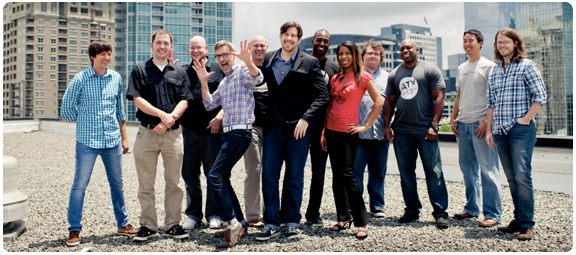
Marketing carries with it the baggage of being a one-way conversation. So, the question for those in the field becomes, “How do I make people aware of something without it seeming like a blatant ad?” For me, personally, I had always assumed that the key was dressing up promotion in flowery descriptions and big words. But what I thought made me seem like an authority on the subject was actually keeping people from connecting with my writing.
When I started at Ripple, my boss (he hates it when I call him that — sorry Mike) knew that I had been raised in a sales-friendly family. More specifically, my parents were self-employed insurance agents for over 30 years. They had always told me that sales were the reason we could go on camping trips, vacation at the beach, and watch cable tv. And that’s definitely true. But what I didn’t quite get until I started working at Ripple, is that the sales they brought in weren’t what made them successful. It was their attitude toward their clients that created loyalty, and kept food on the table.
Nobody has a good relationship with a narrator. More importantly, nobody’s interested in reading anything that speaks at them rather then to them. After that realization, my writing went from trying to tell people what’s best for them, to letting them make up their own minds.
The advice I most often got back from Mike after reading over one of my early attempts at white paper-like promotions was, “Make it more human.” And I really struggled to understand how to do that. I kept thinking, “I’m human. I’m a decent enough copywriter. What’s not coming through?” Well, as it turns out, I wasn’t coming through. That’s when Mike said something that really opened my eyes as to what all this marketing, advertising, and sales stuff is all about: “building good relationships with like-minded people.”
Nobody has a good relationship with a narrator. More importantly, nobody’s interested in reading anything that speaks at them rather then to them. After that realization, my writing went from trying to tell people what’s best for them, to letting them make up their own minds. I started writing in my own “voice” and shifted focus from netting sales through an authoritative tone, to spelling out what’s worked for Ripple through examples of relationships we’d developed. Not only that, but I began to include the struggles, hiccups, and bumps along the way that showed we’re not only a human company, but that we acknowledge our faults in an effort to overcome them rather than cover them up. It’s the kind of honesty and humility that traditional sales folk wouldn’t touch with a ten-foot pole, and why traditional sales just doesn’t cut it anymore.
The process of becoming a better marketer has really been the process of forgetting what I’d been conditioned to believe about sales. Sure, some companies are going to get your business no matter how they present themselves and their products. Like in the search for late-night food delivery, there just aren’t many options. But when there are a lot of choices, like in the field of IT service, it’s important to remember that content creation isn’t about selling, it’s just the first step in the communication process. And if you want there to be a second step, it’s best to be honest, humble and, above all, human. That’s something my parents practiced, whether they were aware of it or not. And it’s something I try to do not only when writing content, but in every interaction. I can’t guarantee that your boss will thank you for it, but your readers definitely will.
Don't Fall Behind!
Get the latest work-from-home and Humans First® IT tips straight to your inbox.